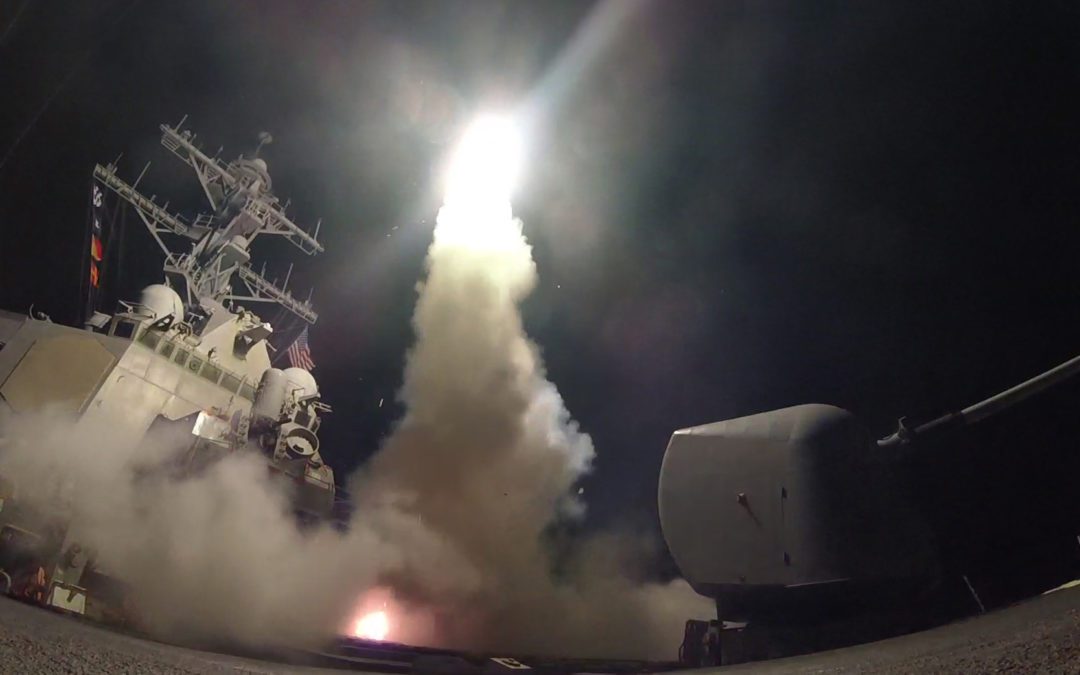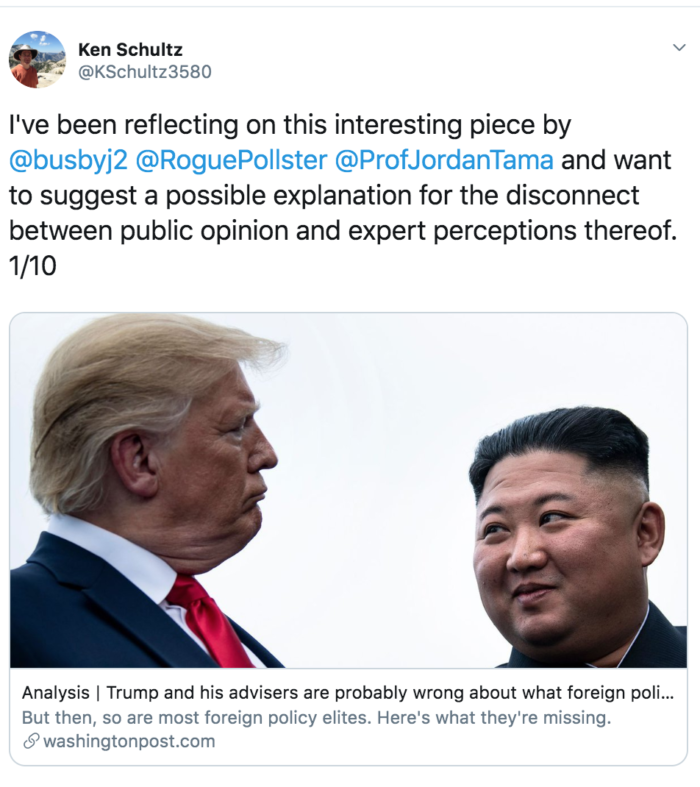There is more continuity in the history of U.S. military basing policy than is typically assumed.


There is more continuity in the history of U.S. military basing policy than is typically assumed.

The Biden administration just issued the government’s first ever anti-corruption strategy. The upshot: It’s needed. It’s analytically informed. It raises the prioritization of...

Canadian scholar and politician Michael Ignatieff had a piece in Persuasion recently on the "collapse of liberal internationalism." For Ignatieff to admit this (as one of the strongest proponents of...

The US State Department recently released the lists of Countries of Particular Concern (CPC) on religious freedom, part of its responsibilities under the International Religious Freedom Act (IRF)....

This is a guest post from Paul Poast, an associate professor in the Department of Political Science at the University of Chicago. Earlier this spring, Poast wrote a post about the Asshole Theory of US Foreign Policy and the structural conditions that may facilitate the United States playing the role of a jerk on the international stage. In part 2, we embedded Poast's thread on President Trump's gauche offer to buy Greenland from Denmark. In part 3, Poast reflects on President Trump's talk about extracting payment from Saudi Arabia for protection in light of previous burden-sharing...

This is a guest post from Paul Poast, an associate professor in the Department of Political Science at the University of Chicago. Earlier this spring, Poast wrote a post about the Asshole Theory of US Foreign Policy and the structural conditions that may facilitate the United States playing the role of a jerk on the international stage. In light of President Trump's overtures to buy Greenland from Denmark, Poast wrote a thread on Twitter about Denmark's importance to NATO, suggesting why President Trump's suggestion might be considered an asshole move. What follows is an embedded thread...

The other day, Emily McFarlan Miller--a journalist with Religion News Service--noted a sense of deja vu. The AP had an article on a delegation of US evangelicals who travelled to Saudi Arabia to meet with Mohammed bin Salman, the country's Crown Prince (and effective ruler). The deja vu was because there was a similar delegation--with some of the same individuals--last year, which she wrote about at the time. These repeated visits, and the visitors' response to the conservative Islamic Kingdom, are surprising, and may represent a shift in how evangelical elites view Saudi Arabia. The 2018...

Remember this summer, when we were about to go to war with Iran? Iran seized an oil tanker passing through the Persian Gulf. Iran also shot down a US drone. The United States responded by shooting down an Iranian drone flying near a US ship, and nearly launching an air strike against Iran. The United States also expanded sanctions on Iran. With Trump's behavior becoming...unpredictable, and hawkish advisers like John Bolton and Mike Pompeo seemingly ascendant in the Administration, some sort of military clash appeared likely. But at some point this likely event kind of...faded away. It's...

This is a guest post from Shana Gadarian and Dan McDowell, both Associate Professors at the Maxwell School at Syracuse University. Earlier this month, after Chinese authorities reportedly backtracked on a set of economic reform promises as part of ongoing trade discussions, President Trump announced that existing tariffs on $200 billion of Chinese goods would increase from 10% to 25%. China responded with new tariff hikes of its own on American products. The costs of the escalating trade war are most acute in rural areas where Trump has enjoyed strong political support. While it is possible...

Last week, Dina Smeltz, Jordan Tama, and I had a piece in the Monkey Cage on the results of our 2018 survey of 588 foreign policy opinion leaders. We found that these opinion leaders misestimated public attitudes on (1) US engagement in the world, (2) support for trade, (3) support for military intervention, and (4) support for immigration. I did a thread on the results, which I'll summarize below, but I wanted to follow up with some thoughts based on a thoughtful critique from Ken Schultz that focused on our finding that elites thought the public less supportive of military intervention...

Three reasons why you shouldn’t worry too much about the blood-thirstiness of your fellow Americans.
Here’s my argument: Late 80s/early 90s Soviet Union. The United Kingdom in 2016. The United States 2016 to now. Three contemporary examples of international suicide that conventional IR neither predicted nor can account. Ok, so perhaps suicide is too hyperbolic a concept and we should go with appetite for self-destruction . Certainly in the case of the Soviet Union any agential claim regarding the state is overdrawn. But either way I think there is a point here. All three states, and particularly the last two, undertook an internally driven diminution of international standing and...